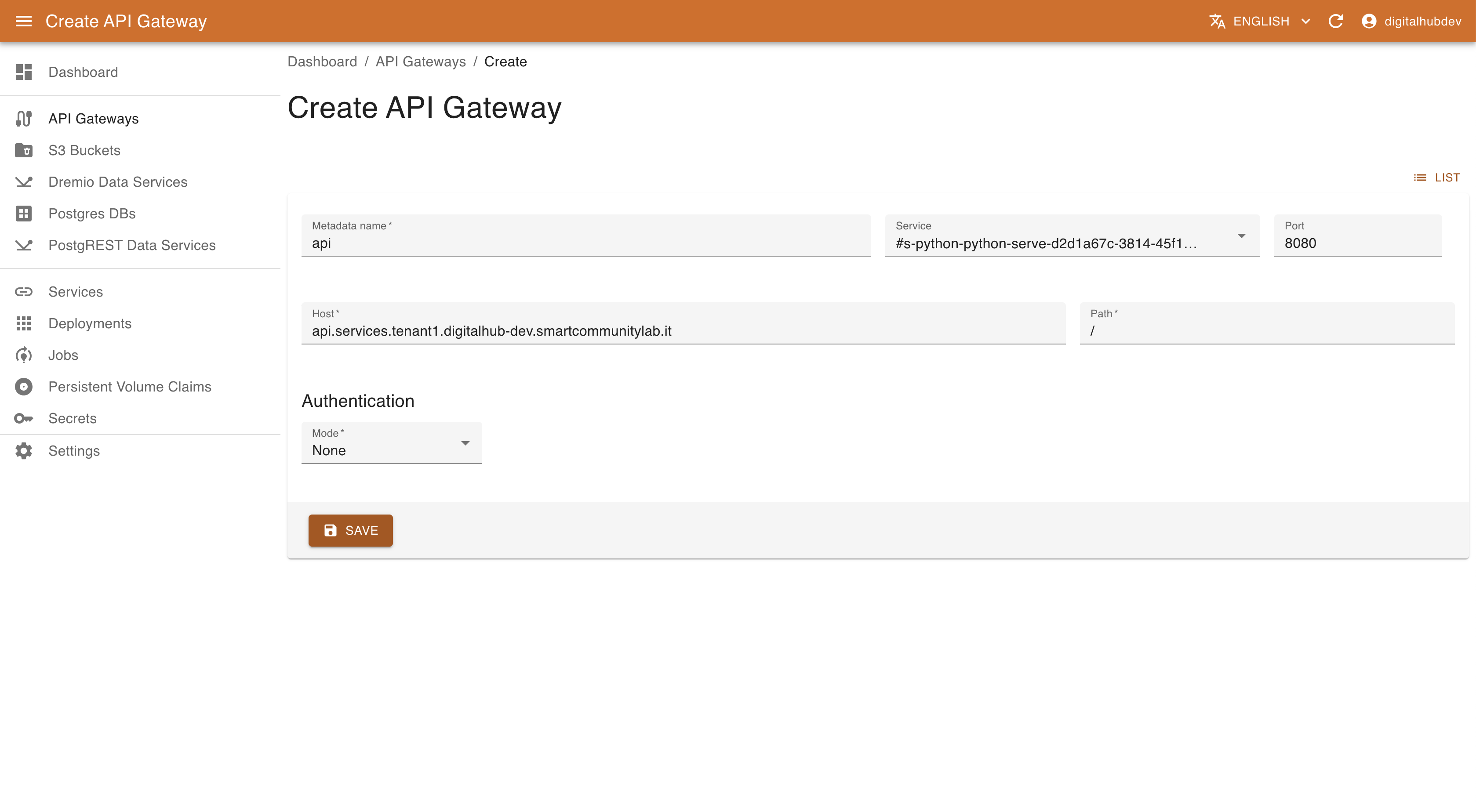Expose datasets as API
We define an exposing function to make the data reachable via REST API:
%%writefile 'src/api.py'
def init_context(context):
di = context.project.get_dataitem('dataset-measures')
df = di.as_df()
setattr(context, "df", df)
def handler(context, event):
df = context.df
if df is None:
return ""
# mock REST api
method = event.method
path = event.path
fields = event.fields
id = False
# pagination
page = 0
pageSize = 50
if "page" in fields:
page = int(fields['page'])
if "size" in fields:
pageSize = int(fields['size'])
if page < 0:
page = 0
if pageSize < 1:
pageSize = 1
if pageSize > 100:
pageSize = 100
start = page * pageSize
end = start + pageSize
total = len(df)
if end > total:
end = total
ds = df.iloc[start:end]
json = ds.to_json(orient="records")
res = {"data": json, "page": page, "size": pageSize, "total": total}
return res
Register the function:
api_func = project.new_function(name="api",
kind="python",
python_version="PYTHON3_10",
code_src="src/api.py",
handler="handler",
init_function="init_context")
Please note that other than defining the handler method, it is possible to define the init_function to define the preparatory steps.
Deploy the function (perform serve action):
run_serve_model = api_func.run("serve", wait=True)
Wait till the deployment is complete and the necessary pods and services are up and running.
run_serve_model.refresh()
When done, the status of the run contains the service element with the internal service URL to be used.
svc_url = f"http://{run_serve_model.status.service['url']}/?page=5&size=10"
Invoke the API and print its results:
res = run_serve_model.invoke(url=svc_url).json()
print(res)
You can also use pandas to load the result in a data frame:
rdf = pd.read_json(res['data'], orient='records')
rdf.head()
Create an API gateway
Right now, the API is only accessible from within the environment. To make it accessible from outside, we'll need to create an API gateway.
Go to the Kubernetes Resource Manager component (available from dashboard) and go to the API Gateways section. To expose a service it is necessary to define
- name of the gateway
- the service to expose
- the endpoint where to publish
- and the authentication method (right now only no authentication or basic authentication are available). in case of basic authentication it is necessary to specify Username and Password.
The platform by default support exposing the methods at the subdomains of services.<platform-domain>, where platform-domain is the domain of the platform instance.

Save and, after a few moments, you will be able to call the API at the address you defined! If you set Authentication to Basic, don't forget that you have to provide the credentials.